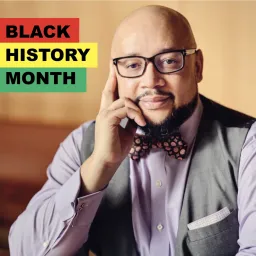A Message from the Chair of the Board of Directors
As I reflect on Black History Month, 2023, I’m reminded of how far we (Blacks/African Americans) have come. I also do not take it for granted about how far I have personally come as a Black alum from the foster care system. Resilience has been a common and enduring theme throughout my life.
My sister and I spent about 2.5 years in the foster care system back in the mid-late 80s. It was a system that was very different from today’s system (or maybe not for some). The system was steeped in breaking up families, adopting Black and Brown children into White homes, severing ties with biological families. Long term foster care was the standard plan for many children and their families at that time. Permanency goals were typically long term foster care and/or adoption - not reunification.
My sister and I were removed from our single mother’s home due to her addiction to crack cocaine and neglect when I was about 13 years old and my sister around 10 years old. We initially were placed with our biological maternal grandparents. Our grandparents always acted as a safe haven for us when our mother would be evicted from our home or when we were homeless.
Unfortunately, we were removed from our grandparent’s home because they believed in physical discipline. We then moved in with our pastor and his wife who became certified foster parents for us. As much as they were great caregivers for us, our mom felt threatened about our placement with them and sabotaged this placement because she was afraid they would adopt us if she did not successfully complete her drug and alcohol treatment program. We were then removed and lived with a certified foster parent in our neighborhood.
After our mother completed her treatment program, we were actually reunified with our mother. Our mother then went on to finish her AA, her undergraduate degree, and then her Master’s Degree. She also became a WA state Child Protection social worker for over a decade advocating for children and families like ours.
22% of youth in care are Black but only account for 13.6% in total population compared to 43% of youth in care are white and account 49% total population.*
So my story is both typical and atypical compared to other Black children who have experienced the child welfare system. We remained together as siblings in each placement. We were placed with relatives and extended family. We were placed in a certified foster home with a seasoned Black woman in our neighborhood. We maintained connections with our mother with weekly visits and continued to connect with our grandparents and pastor. We were never removed from our schools or community. Lastly, we reunified with our mother.
Sadly, this was not the norm back in the late 80s, or at times, even today. Far too often, Black children are removed from their parents and extended family unjustly. Far too often they’re removed from their communities and their supportive networks. Far too often they’re placed in homes with White families or other families who are not accustomed to supporting Black children and meeting their cultural needs. Today, Black children experience poor outcomes and linger in foster care far longer than their White counterparts.
African-American youth are over 1.23 times more likely to age out of foster care without a family than are their white peers.**
As we celebrate Black History Month this February and acknowledge our ancestors and their accomplishments, I want to encourage us to remember it is incumbent for us to remain vigilant about Black children and their families. We must continue to strengthen family connections and provide services prior to removal. If removal is inevitable, we must exhaust all resources to support their parents and extended families to strengthen their village. We must remain committed to seeing every child leaves the system with a relationship to a caring adult and forever family. This is the commitment FosterClub has made to every child currently in the system and for those who have left. Until every child, especially Black children, are thriving, we are failing our entire future. Ase.
D’Artagnan Caliman
Alumni foster care
Advocate
FosterClub Board Chair
* Adoption and Foster Care Analysis and Reporting System (2021). https://www.acf.hhs.gov/cb/report/afcars-report-29
** Adoption and Foster Care Analysis and Reporting System (2018). https://www.acf.hhs.gov/cb/report/afcars-report-25

